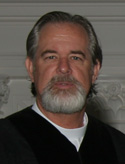About St. Peter Presbyterian
Why the ‘St. Peter’ Name?
It’s Saint Peter (without an ’s)
Yes, we call the church Saint Peter rather than Saint Peter’s. It isn’t that we don’t want to be confused with a certain place in Rome. And it isn’t an issue of style either.
It has to do with the Apostle Peter’s teaching on the nature of the church (see the 1 Peter passage here). No worries if you get it wrong. We just thought you might like to know.
“But ye are a chosen generation, a royal priesthood, a holy nation, a peculiar people; that ye should shew forth the praises of Him who hath called you out of darkness into His marvellous light; Which in time past were not a people, but are now the people of God: which had not obtained mercy, but now have obtained mercy.”
Our Mission

Community
Our Beliefs
View of Scripture
The Primary Standard
Commitments
In the tradition of the Protestant Reformers, we hold to the:
- Five “solas” of the Reformation: Sola Scriptura, Sola Gratia, Sola Fide, Solo Christo, and Soli Deo Gloria
- Westminster Standards
- Preaching of the Word, the exercise of church discipline, and the right celebration of the sacraments.
I Corinthians 8:6
Our Leadership
Our church is shepherded by a group of men who have been examined on their understanding of the Bible and have also proved themselves in faithfully living out the scriptures. These men are called elders.

Rev. Laurence Windham
Pastor Windham moved to Bristol, Virginia and became the pastor of the church in 2000. Prior to that, he attended Reformed Theological Seminary in Orlando, Florida while working at Ligonier Ministries and serving as a college minister for Reformed University Fellowship at the University of Central Florida. Laurence maintains that his greatest credentials are the smiles of his wife and the laughter of his children.
Rev. Steve Murphy
Husband to Kara, father to twelve, and “Pop-pop” to his grandchildren, Pastor Murphy has served as pastor of Saint Peter Presbyterian Church’s Abingdon parish since 2009. Previously Steve served as an interim pastor and spent some time on the mission field. More recently the Murphys published Homeschooling Today magazine. Steve received his degree in Bible with a minor in Greek from Cedarville University in 1991. The Murphy family lives in the shadow of Little Mountain, and enjoys the rich community life of believers to which God has led them.
